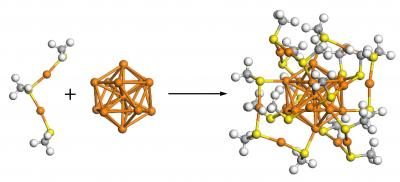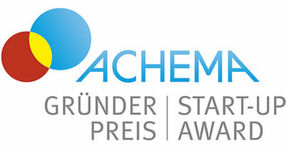BASF continues to strengthen its competitive position in paper chemicals
Advertisement
BASF is further strengthening its position as an attractive partner for the paper industry in Europe. New organizational restructuring measures will above all enhance customer-critical functions such as technical service and key account management. Greater customer focus - BASF will be deploying this principle and other measures to the strategic direction of its paper chemicals business, in this way also reacting to the changing requirements of its customers and to the current market environment.
According to Dr. Martin Brudermüller, head of the Functional Polymers division: "Paper chemicals are for us a core business with solid growth prospects that we want to secure by enhancing our competitiveness. And our key drivers are innovation, efficiency and operational consistency." Through a broad based investment program over the past three years, BASF has modernized and expanded its production base in Europe and brought new products to market. Most of the projects have affected the Ludwigshafen site, Germany:
* In 2001, BASF's Basonal plant for the production of paper dispersions was expanded to include a new production facility that lifted total annual capacity to 300,000 metric tons. A new production technology was required to successfully implement Basonalâ, BASF's brand new, innovative concept for the development and production of tailor-made paper dispersions.
* At the same time, a new facility for the production of high-molecular polyethylene imine, an improved process chemical used in paper production, was added to BASF's imine plant.
* This was followed, at the beginning of 2002, by the opening of the polyvinylamine plant, allowing BASF to make this new class of innovative paper chemicals with their broad applications spectrum available for the first time on a technologically large scale.
* At the end of 2002, BASF's northernmost production plant came on stream. The group's new site in Hamina, Finland, produces paper dispersions using a technology that is comparable to the Basonal plant. Annual capacity stands at 140,000 metric tons. The plant's biggest customers are the region's leading paper manufacturers.
* In spring 2003, also in Ludwigshafen, BASF's new plant for the production of AKD-based (alkyl diketene) sizing agents started operating. Thanks to their water repellent properties, AKD waxes improve the ink holdout and printability of paper. The new plant has doubled capacity to 10,000 metric tons per year. It operates according to a completely new, fully patented system and allows for significant improvements in product quality.
These measures were accompanied by the ongoing modernization of the Paper Technical Center in Ludwigshafen but also the closure of BASF's site in Arnhem in the Netherlands at the end of 2002. The site's dispersions plant was no longer competitive.
"Our investment projects and the site decisions these involved were the necessary pre-conditions for the further development of our paper chemicals business", stated Martin Brudermüller. "However, the overcapacities and fierce competition that are a feature of the current market environment are constantly presenting us with new challenges. This is why we plan to improve our customer focus and enhance overall efficiency throughout our organization in the key European market. Unfortunately, this also means redundancies."
The following measures are planned:
* The more than 20 year-old Styronal plant in Ludwigshafen for the production of carpet backing binder and paper dispersions will be shut down. Paper dispersions will then be produced exclusively in the neighboring, modern Basonal plant. Along with its plant in Hamina, BASF will have sufficient capacity - a total of 440,000 metric tons - to supply its customers in Europe.
* Internal processes and structures will be adjusted and streamlined in line with the new strategic direction and become more customer focused.
* BASF's dispersions business for carpet backing binders in Europe will be cut back in favor of its core paper chemicals business. The decision was triggered above all by unsatisfactory profitability in a declining market.
All in all, the measures will lead to a loss of 120 jobs in Europe, 100 of which will be in Ludwigshafen. Most will be in production, carpet backing binder sales and internal and administrative functions. BASF will, together with employee representatives and on the basis of existing agreements on workforce transition management, seek the most socially responsible solutions for the employees in question.




























































